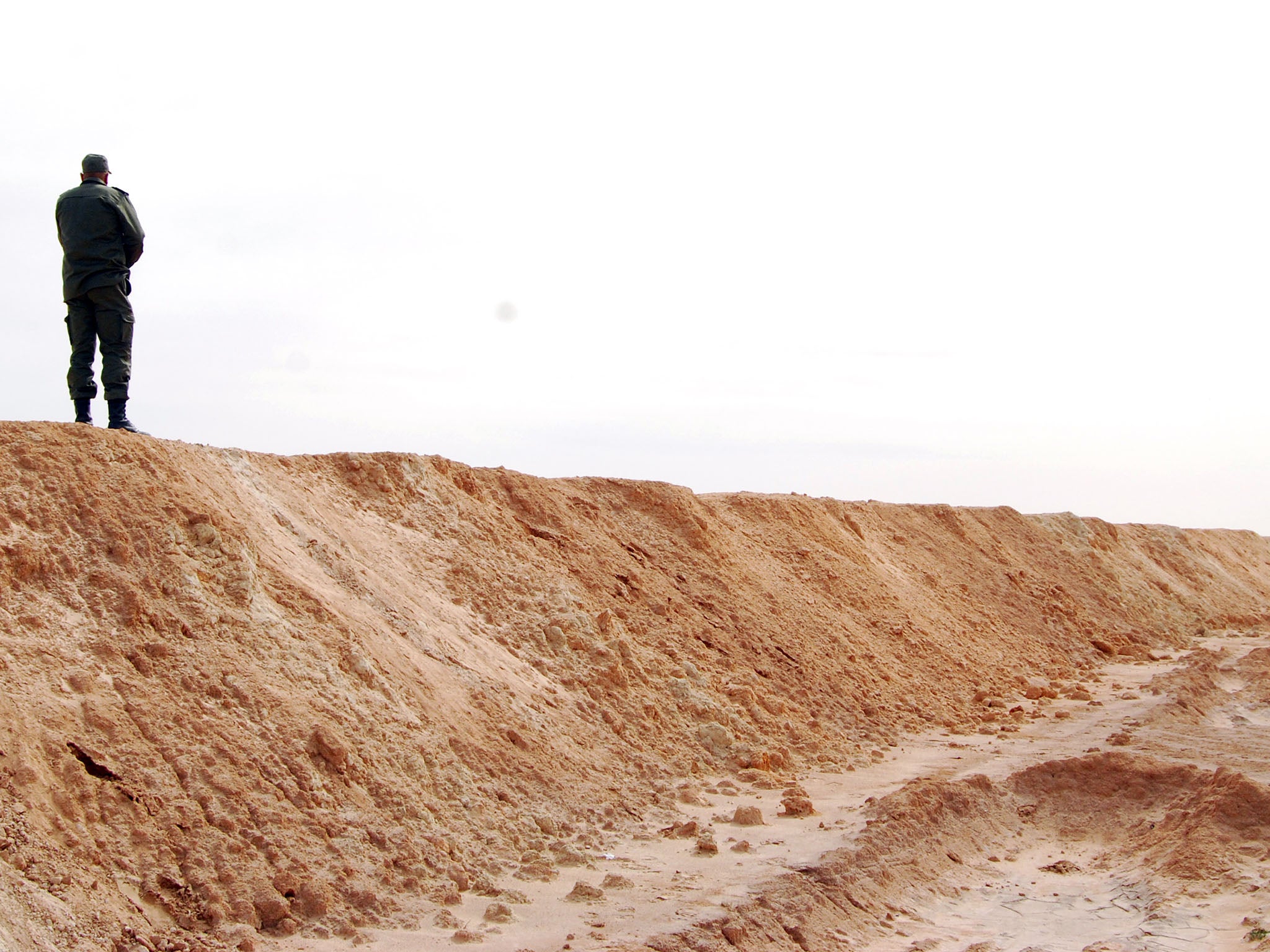Tunisia builds anti-jihadi barrier on border with Libya to keep Isis out
Isis-linked militants killed more than 60 people after crossing the border last year

Your support helps us to tell the story
From reproductive rights to climate change to Big Tech, The Independent is on the ground when the story is developing. Whether it's investigating the financials of Elon Musk's pro-Trump PAC or producing our latest documentary, 'The A Word', which shines a light on the American women fighting for reproductive rights, we know how important it is to parse out the facts from the messaging.
At such a critical moment in US history, we need reporters on the ground. Your donation allows us to keep sending journalists to speak to both sides of the story.
The Independent is trusted by Americans across the entire political spectrum. And unlike many other quality news outlets, we choose not to lock Americans out of our reporting and analysis with paywalls. We believe quality journalism should be available to everyone, paid for by those who can afford it.
Your support makes all the difference.Tunisia is building an "anti-jihadi" barrier along its border with Libya.
Upon completion, the barrier of sand banks and water trenches will stretch 125 miles inland from the coast, covering a little under half the length of the 285-mile border.
There are monitoring centres dispersed along the length of the barricade, which will now be equipped with electronic monitoring equipment. Partially funded by the US and Germany, the barrier is designed to prevent vehicles crossing the border from Isis-linked training camps in west Libya.
The construction of the barricade was announced last July, in the days following an attack by an Isis-linked gunman on a Tunisian tourist resort in which 39 people died.
Three months before that attack near the city of Souse, an al-Qaeda linked splinter group had shot dead 24 people in the Bardo National Museum in Tunis.
Prior to these two attacks, the coastal nation was enjoying a boom in tourism. This was partially traced to Tunisia's reputation as the only country to have successfully transitioned to a liberal-democratic model following the revolutions of the Arab Spring.
But the deaths of 59 foreign tourists in the space of three months challenged the notion of the "Tunisian exception". Last summer, Tourism minister Selma Loumi said he anticipated that the country would lose $500m in tourist revenue as a result of the attacks, wiping out a substantial portion of the country's $50bn GDP.
Both the Sousse gunman and the Bardo militants are understood to have trained in Libya before crossing the border to launch their attacks. The new border defences are the latest attempt on behalf of the Tunisian government to emphasise the continued security of their country relative to its neighbours.
Defence Minister Farhat Horchani said: "Today we finished closing it off, and this will help us protect our border, and stop the threat."
Subscribe to Independent Premium to bookmark this article
Want to bookmark your favourite articles and stories to read or reference later? Start your Independent Premium subscription today.
Join our commenting forum
Join thought-provoking conversations, follow other Independent readers and see their replies
Comments